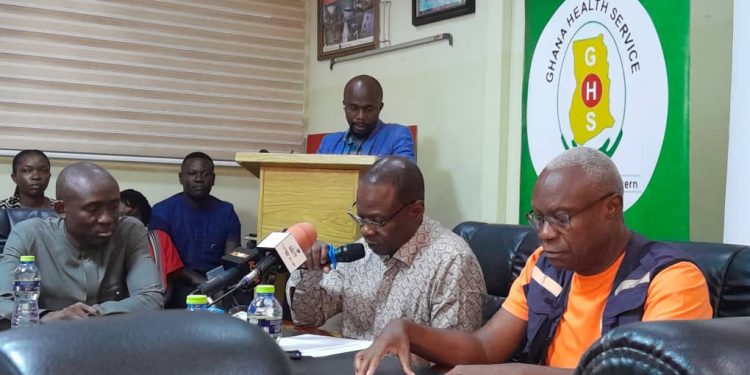The Ghana Health Service (GHS) launched a one-dose cholera vaccination campaign on Saturday in three subdistricts of Awutu Senya East in the Central Region.
The month-long initiative, set to conclude on December 3, 2024, aims to vaccinate 150,634 people in the targeted subdistricts.
The campaign comes six weeks after Ghana experienced a cholera outbreak across four regions, with 2,385 suspected cases, 196 confirmed cases, and 21 deaths reported.
Dr. Kwame Amponsa-Achiano, Programme Manager of the Expanded Programme on Immunization at GHS, explained during the launch in Accra that Awutu Senya was prioritized for vaccination because it accounted for over half of the suspected cholera cases.
As of November 27th, the Central Region had recorded 1,016 suspected cholera cases, with 77 confirmed cases and nine deaths.
Dr. Amponsa-Achiano also indicated that the vaccination campaign could expand to Ga South, Ada, and the Western Region after the elections.
He emphasized that the phased, reactive cholera vaccination campaign aimed to curb the ongoing outbreak, alleviate suffering, and safeguard public health.
The oral cholera vaccine is safe, effective, and will help reduce transmission by boosting immunity in the population, alongside other cholera prevention measures.
Dr. Amponsa-Achiano noted that the rise in cholera cases and fatalities since September 2024 had largely affected areas with limited access to safe water sources, where people relied on rivers, wells, and streams for drinking water.
Dr. Amponsa-Achiano urged the public to practice proper hygiene by washing hand thoroughly with soap and running water, both before and after meals and after using the restroom.
The public should also avoid direct contact with bodily fluids when caring for sick individuals and seek immediate medical attention at the nearest health facility if they experience severe diarrhea or vomiting.
Dr. Frank John Lule, the World Health Organization’s Representative to Ghana, said that cholera served as a stark reminder of social inequities and underdevelopment. He warned that the disease could lead to severe dehydration and, if untreated, could be fatal.
Although Dr. Lule acknowledged the vaccine’s safety and effectiveness, he stressed that the long-term solution to controlling cholera and other fecal-oral diseases lay in economic development, as well as ensuring universal access to clean drinking water and proper sanitation.
He urged all eligible individuals in the affected areas to take advantage of the vaccination campaign and called on healthcare workers to strictly adhere to cholera infection prevention and control protocols.
As of October 31, 2024, there have been 481,516 reported cholera cases worldwide, including 3,990 deaths.
The Ghana Health Service (GHS) has advised the public to drink only treated water, eat food that has been well-cooked or properly handled, and avoid close contact with infected individuals.
It is also crucial to practice good hygiene by washing hands with soap and running water, ensuring proper disposal of feces, and seeking immediate medical care if experiencing severe diarrhea and vomiting.
Source: myghanadaily


